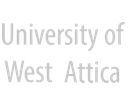LIS education and cultural heritage information management
Abstract
Purpose - It has been more than two decades that LIS Education has been regarding information organizations (libraries, archives and museums) as an integrated field sharing a common basis of acquiring, handling and disseminating information independently of its source or substrate. In this respect LIS curriculum has treated resources at the basis of their descriptive, structural and administrative metadata; their semantic value; and the employment of technology as the means for creating a common platform for its organization, accessing and dissemination purposes.
Design/methodology/approach - Within this framework, LIS curriculum has expanded in order to meet the informational needs of cultural heritage institutions, such as museums and cultural centers. Furthermore, their requisites to create the fundamentals for their digital information management and digital presence in the web and their obligations to supply information and communicate with each other became also part of the curriculum. The latter introduced almost simultaneously the need to operate in common environment with archives and libraries that not only hold a significant amount of related information but also have common operational attributes. The latter has brought forward issues of interoperability, communication between metadata standards, the use of controlled vocabularies and semantic representation techniques.
All of the above, have established the notion in LIS Education that libraries, archives and museums are a global network of information organizations. At the same time, a series of cultural heritage projects, funded through the Horizon2020 call were focusing on employing new technologies for staging cultural heritage content. The need for metadata and semantics had acquired the expertise of information professionals.
In this paper the case of the curriculum reform of the Department of Archives, Library and information Studies of the University of West Attica is presented and the specific interrelationship of the Horizon2020 Project “CrossCult" in which the aforementioned Department participated, is viewed as a parameter for shaping a cluster of courses within its curriculum.
Keywords
References
Borrego, Á. (2015) ‘Library and information education in Europe: An overview’, BiD. doi: https://dx.doi.org/10.1344/BiD2015.35.8#sthash.jETKVkMT.dpuf.
Guidelines for Student Internships (2015). Louisiana State University School of Library and Information. Available at: https://www.lsu.edu/chse/slis/courses/Internship_Guidelines_03132017.pdf.
Južnič, P. and Pymm, B. (2016) ‘Practicums as part of study programmes in library and information studies’, Andragoška spoznanja, 22(3), p. 91. doi: 10.4312/as.22.3.91-99.
Pegg, A. (2014) ‘We Think That’s the Future’: Curriculum Reform Initiatives in Higher Education, Higher Education Academy. Available at: https://www.heacademy.ac.uk/system/files/curriculum_reform_final_19th_dec_1.pdf.
Jantz, R. C. (2016), ‘’Managing creativity: The innovative research library’’. Association of College and Research Libraries, American Library Association.
Missingham, R. (2006) ‘Library and information science: Skills for twenty-first century professionals’, Library Management. doi: 10.1108/01435120610668197.
Nonthacumjane, P. (2011) ‘Key skills and competencies of a new generation of lis professionals’, IFLA Journal. doi: 10.1177/0340035211430475.
Missingham, R. (2006) ‘Library and information science: Skills for twenty-first century professionals’, Library Management. doi: 10.1108/01435120610668197.
Elings, M. W., Choi, Y. and Zhang, J. (2014) ‘Developing 21st Century Cultural Heritage Information Professionals for Digital Stewardship: A Framework for Curriculum Design’, in HASTINGS, S. K. (ed.) Annual Review of Cultural Heritage Informatics 2012-2013. Rowman & Littlefield Publishers.
Giannakopoulos, G., Kyriaki-Manesi, D., & Zervos, S. (2011). Approaching Information as an Integrated Field: Educating Information Professionals. In Integrated Information Management Proceedings IC-ININFO (pp. 128–132). Retrieved from http://ejournals.teiath.gr/index.php/JIIM/article/view/3156
DOI: 10.26265/jiim.v4i1.4394






